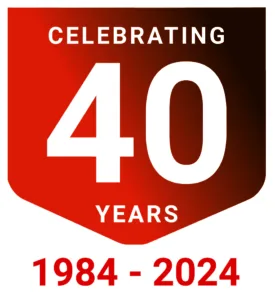
In October 2023, the Government announced changes to the regulatory Reform (Fire Safety) Order 2005 through the Building Safety Act 2022. This came about following the Grenfell inquiry review of Building Regulations and Fire Safety, led by Dame Judith Hackitt, who published the findings of the inquiry in May 2018.
The report concluded that the tragedy highlighted serious issues stemming from ignorance, indifference, a lack of clarity on roles and responsibilities, and inadequate regulatory oversight and enforcement.
This article looks at those changes and what it means to you if you are running a business or are responsible for non domestic areas in multi-occupation residential buildings like stairwells.
Which buildings does the new fire legislation apply to?
The new fire safety requirements apply to non-domestic premises. This includes:
- Workplaces
- Non domestic parts of multi-occupied residential buildings (communal corridors, stairways and plant rooms)
The new requirements do not apply to domestic properties.
Who is responsible for enforcing the new fire safety requirements?
As is the case with the (Regulatory Reform Fire Safety Order 2005), the local fire and rescue authorities are responsible for enforcing the additional requirements outlined in Section 156 of the Building Safety Act 2022.
For buildings that are unoccupied, for example on building sites, the Health and Safety Executive are the enforcing body. The Defence Fire Safety Regularor is the enforcing body for sites occupied by the armed forces. For Government owned buildings, the Crown Premises Fire Safety Inspectorate is responsible.
What are the new fire safety amendments?
The new legislation (The Building Safety Act 2022) provides an amendment to the fire safety order 2005 in the following areas:
- Require that all responsible persons must record their completed fire risk assessment, and in full (where previously on specific information was required to be recorded)
- Require that all responsible persons must record the identity of any individual engaged by them to undertake/review any or all of the fire risk assessment. This must be shared with residents of multi-residential unit premises where applicable.
- Require that all responsible persons must demonstrate how fire safety is managed in your premises.
- require that all Responsible Persons must record (and as necessary update) their contact information, including a UK-based address, and share this, along with the identified fire safety risks, preventative and protective measures, any competent persons nominated to assist with fire-fighting and detection measures, with other Responsible Persons and residents of multi-domestic unit premises where applicable
- require that all Responsible Persons must take reasonably practicable steps to ascertain the existence of other Responsible Persons who share, or have duties in respect of the same premises, and of Accountable Persons (which are a new legal entity made under the Building Safety Act in the case of higher-risk residential buildings) in relation to the premises – they must then identify themselves to said persons and cooperate with accountable persons so that the accountable persons can carry out duties imposed by the Building Safety Act 2022;
- require that departing Responsible Persons must share all ‘relevant fire safety information’ with incoming Responsible Persons
- require Responsible Persons of a building containing two or more sets of domestic premises to provide residents with relevant fire safety information in a format that is easily understood by the residents
- increase the level of fines for some offences
- strengthen the status of statutory guidance issued under Article 50 of the Fire Safety Order
To summarise, responsible persons must be much better at record keeping and sharing information. They must also take care when choosing suppliers of fire alarms and detection systems and demonstrate due dilligence.
Lives are lost when people assume other people are dealing with fire safety or systems aren’t managed properly. You need to have robust processes and methods of ensuring your fire systems are in good working order and this includes regular maintenance, monitoring and record keeping.
How can GBSG help?
- Build a bespoke fire safety system to meet your requirements and to adhere to current legislation
- Regular maintenance – ensure your system is up to date and working properly
- Integration – we can integrate your fire system with other systems like your security system and allow you to manage both in one place.
- Future proof – as your business expands we can add fire systems that will join your existing system and be controlled from one place.
- Monitoring and reporting – we can remotely monitor your system 24/7, useful when you have no staff on site.
What to look out for
- Ensure the company designing, installing, commissioning and maintaining your fire detection and fire alarm system is fully accredited to BAFE SP203-1
This is very important in light of the Building Safety Act and the additional responsibilities of the Responsible person. Due dilligence must be demonstrated in relation to the competency of third parties appointed to deliver fire systems.





